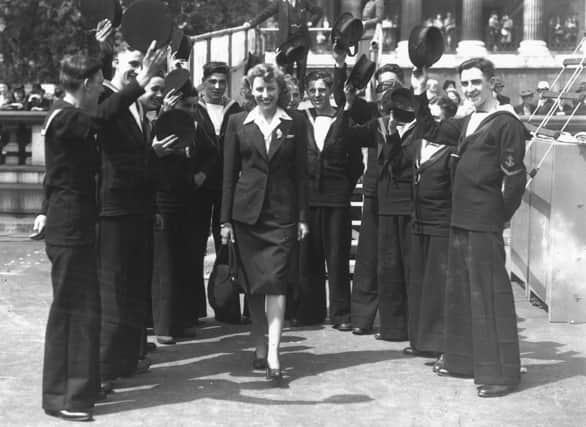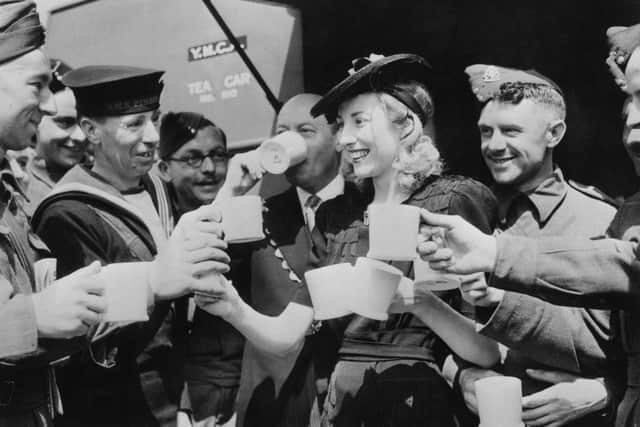Rare pictures of the famous faces whose voices entertained a nation at war


The wartime radio stars were, like the celebrities of today, among the most photographed people of their time, and none more so than Vera Lynn, the forces’ sweetheart, whose unbearably poignant songs reminded serving men of being back home.
At a defining moment in the nation’s history, her radio “letters” to the boys on the front line embodied the very values they were fighting for.
Advertisement
Hide AdAdvertisement
Hide Ad“You’ll hear from me again next week,” she intoned every Sunday night. “Goodnight, boys. Sincerely yours, Vera Lynn.”


But it was a very different voice that was to prove one of the most distinctive and even controversial of the time. Wilfred Pickles was an actor from Halifax plucked to join Alvar Lidell and John Snagge among the ranks of BBC newsreaders. A regional voice was a revelation. Some said it undermined the seriousness of the bulletin. But Pickles struck a chord and went on to become a post-war radio favourite.
Tommy Handley was the comedy star of the day. ITMA, his weekly assault of catchphrases, was an institution, but no less popular were Arthur Askey and Tommy Trinder and the American shows of Glenn Miller, Jack Benny and Bob Hope, broadcast on the BBC forces’ network, forerunner of the Light Programme and today’s Radio 2.
Comment Guidelines
National World encourages reader discussion on our stories. User feedback, insights and back-and-forth exchanges add a rich layer of context to reporting. Please review our Community Guidelines before commenting.